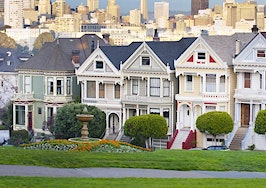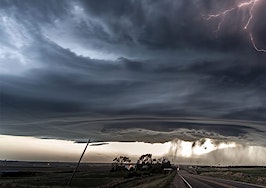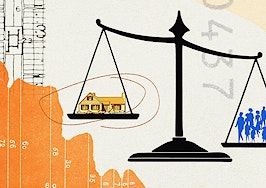- Pending Home Sales Index (PHSI) rose 3.5 percent between July 2015 and July 2016.
- The south end of the state stole the show, with a 1.6 percent annual jump in pending sales.
- Respondents of CAR’s July survey said listing appointments, along with calls and open house attendance, has slowed given the time of year.
Although buyer competition is softening across major California markets, statewide pending sales data reveals heightened activity in Southern California. On a seasonally adjusted annualized basis, the California Association of Realtors Pending Home Sales Index (PHSI) rose 3.5 percent between July 2015 and July 2016.
The PHSI, which sat at 118.4 last year, reached 122.5 last month based on signed contracts. Month-over-month, California pending sales rose 3 percent from June, when the index was 119. An index of 100 is equal to the average number of signed contracts in 2008, according to CAR.

July pending home sales / CAR
Southern California stole the show, with a 1.6 percent annual jump in pending sales, while the Bay Area market posted a 3.5 percent drop in the same category. In the Central Valley, pending sales were virtually flat, CAR says.
Looking closer, Santa Clara County saw the biggest yearly drop, at 9.3 percent. San Francisco County, on the other hand, saw a 20.6 percent increase, but not enough to keep the hot Bay Area pending sales trends afloat.
Los Angeles County dropped 3.8 percent, while Orange and San Diego counties rose 7.8 and 7.5 percent, respectively. Kern County dropped 22.1 percent.
What are California Realtors saying?
Respondents of CAR’s July Market Pulse Survey said listing appointments, along with calls and open house attendance, had slowed due to seasonality.
Sixty-six percent of homes received more than one offer in July, the report says, which is a drop from 72 percent in June and slightly below July 2015’s 67 percent share. The average number of offers fell to 2.8 per property.
Across California, the share of homes selling above list price was 34 percent – the same as the year prior. The average premium dropped to 7.8 percent, below 11 percent in June and 11 percent last July.
In contrast, the share of homes selling under asking price dropped from 43 to 36 percent between July 2015 and July 2016. On average, these homes closed for 14 percent below asking – up from 11 percent in June and 9.6 percent last July.
Approximately two-thirds (70 percent) of Realtors said unaffordable homes and lack of inventory were chief concerns, and market optimism has declined over the past few months.













